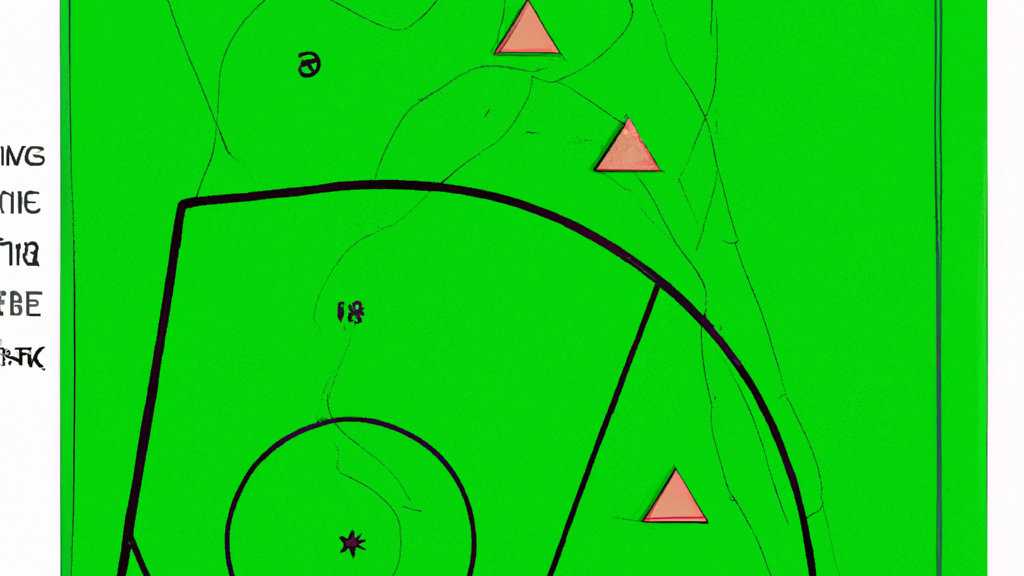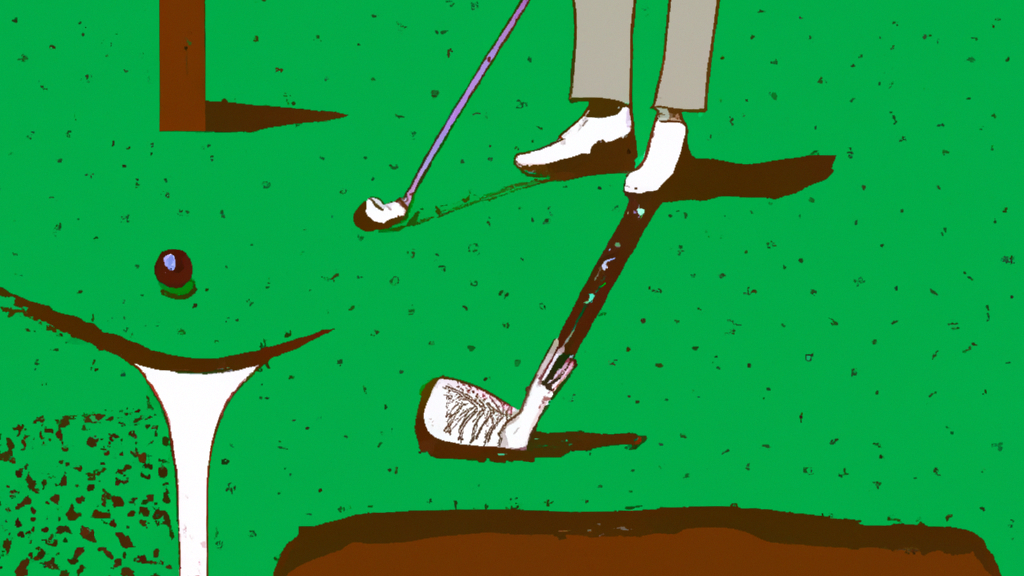THE PSYCHOLOGY OF THE GOLF SWING: MANAGING YOUR THOUGHTS AND EMOTIONS DURING THE SWING
Golf is a game that requires both physical and mental prowess. While most golfers focus on perfecting their swing mechanics, they often overlook the importance of managing their thoughts and emotions during the swing. The psychology of the golf swing is a crucial aspect of the game that can make or break a golfer’s performance. In this article, we will explore the various mental and emotional factors that come into play during a golf swing and provide tips on how to manage them effectively.
Whether you’re a seasoned pro or a beginner, understanding the psychology of the golf swing can help you improve your game and enjoy the sport even more. So, let’s dive in and explore the fascinating world of golf psychology!

Golf and the Psychology of the Swing
Golf is a sport that requires a lot of mental focus and emotional control. The psychology of the golf swing is an essential aspect of the game that can make or break a player’s performance. Managing your thoughts and emotions during the swing is crucial to achieving success on the golf course. In this article, we will explore the psychology of the golf swing and provide tips on how to manage your thoughts and emotions during the swing.
The Golf Swing
The golf swing is a complex movement that requires a lot of coordination and precision. It involves a series of movements that must be executed in a specific sequence to produce a successful shot. The golf swing is not just a physical movement; it also involves a lot of mental and emotional aspects. The way you think and feel during the swing can have a significant impact on the outcome of the shot.
Managing Your Thoughts
One of the most important aspects of the psychology of the golf swing is managing your thoughts. Your thoughts can either help or hinder your performance on the golf course. Negative thoughts such as “I can’t do this” or “I always mess up this shot” can lead to a lack of confidence and poor performance. On the other hand, positive thoughts such as “I can do this” or “I have practiced this shot many times” can boost your confidence and lead to better performance.
To manage your thoughts during the golf swing, it is essential to practice positive self-talk. Positive self-talk involves using positive affirmations to boost your confidence and focus your mind on the task at hand. For example, instead of saying “I always mess up this shot,” say “I have practiced this shot many times, and I know I can do it.” Positive self-talk can help you stay focused and confident during the swing, leading to better performance.
Managing Your Emotions
Another important aspect of the psychology of the golf swing is managing your emotions. Emotions such as anxiety, frustration, and anger can have a significant impact on your performance on the golf course. Anxiety can lead to a lack of focus and poor decision-making, while frustration and anger can lead to poor shot selection and execution.
To manage your emotions during the golf swing, it is essential to practice relaxation techniques such as deep breathing and visualization. Deep breathing can help you calm your nerves and stay focused during the swing. Visualization involves imagining yourself executing the shot successfully, which can help boost your confidence and reduce anxiety.
Another way to manage your emotions during the golf swing is to practice mindfulness. Mindfulness involves being present in the moment and fully aware of your thoughts and emotions. By practicing mindfulness, you can become more aware of your emotions and learn to manage them more effectively. For example, if you feel yourself becoming frustrated during the swing, you can take a moment to acknowledge the emotion and then refocus your mind on the task at hand.
Pre-Shot Routine
In addition to managing your thoughts and emotions, it is also essential to have a pre-shot routine. A pre-shot routine is a series of steps that you take before each shot to help you stay focused and relaxed. A pre-shot routine can include things like taking a deep breath, visualizing the shot, and checking your alignment. By having a pre-shot routine, you can create a sense of consistency and routine that can help you stay focused and relaxed during the swing.
Realistic Expectations
Finally, it is essential to have realistic expectations when it comes to your golf game. Golf is a challenging sport that requires a lot of practice and patience. It is essential to understand that you will not always play your best and that there will be days when you struggle on the golf course. By having realistic expectations, you can avoid becoming frustrated or discouraged when things don’t go as planned.
Conclusion
In conclusion, the psychology of the golf swing is an essential aspect of the game that can have a significant impact on your performance on the golf course. Managing your thoughts and emotions during the swing is crucial to achieving success on the golf course. By practicing positive self-talk, relaxation techniques, mindfulness, and having a pre-shot routine, you can improve your mental and emotional game and achieve better results on the golf course. Remember to have realistic expectations and enjoy the game, and you will be well on your way to becoming a successful golfer.

- Eliminate Swing Thoughts: How to Stop Playing Golf Swing – The …
Results 80 – 90 … It’s time to stop thinking about the golf club in your swing and start … your best golf, you need to learn how to control your emotion and … - Golf Psychology, The Key to Your Consistency and Performance
May 26, 2017 … Focusing on your Swing Keys during the swing sends signals from your … for outcome without being able to manage your thoughts or emotions. - Turn On Your Athletic Mind For A Better Golf Swing
Jul 6, 2017 … When an athlete is performing their best, they are not preoccupied by thought, judgement or emotion. There’s no sense of self or “self- … - Golf Psychology Tips to Simplify Your Mental Game – Sam Jarman Golf
How do I control my thoughts out on the golf course? Have you ever lost your keys, … Your job as a golfer is not to understand ‘the’ golf swing. - Disconnect Your Mind/Body for a More Fluid Golf Swing
Mar 3, 2011 … We’ll say that your conscious mind is that which you can “control” or think about and take deliberate action on. Whereas your subconscious is … - Manage Your Game – Golf Tips Magazine
Sep 1, 2009 … Finally, make a swing with your target in mind. THE POSTSHOT ROUTINE … Reacting to a shot’s result wears on your emotions. - Automatic Negative Thoughts: How To Control Your Golfing ANTS …
Jul 4, 2017 … While every golfer has their own personal negative thoughts, … is a skill that can be honed through consistent practice, just like a swing … - Are Swing Thoughts Bad? – Par Machine
Sep 26, 2020 … My Progression of Managing Swing Thoughts This Season … the easier it is to manage swing thoughts on the golf course. - 5 Strategies To Keep Your Mind in the Present on the Golf Course …
Sep 2, 2017 … Just as you wouldn’t abandon your swing after one bad shot or bad round, … to manage your mind to be present focused on the golf course. - 5 PGA Tour players reveal their favorite go-to swing thoughts
Jun 27, 2020 … PGA Tour players play the game at a level that is unfamiliar to most of us, … Bryson uses to control the radius of his golf swing.
Fun facts about The Psychology of the Golf Swing: Managing Your Thoughts and Emotions During the Swing
- Golf originated in Scotland in the 15th century and was originally played with a stick and ball.
- The first recorded game of golf took place on March 26, 1297, when King James II of Scotland banned the sport because it was interfering with archery practice.
- The term “caddie” comes from the French word “cadet,” which means younger son or brother.
- In professional golf tournaments, players are not allowed to use rangefinders or GPS devices to measure distances on the course.
- The longest hole in professional golf is currently the seventh hole at Satsuki Golf Club in Japan, measuring at a whopping 964 yards!
- Tiger Woods is considered one of the greatest golfers of all time and has won over $120 million dollars throughout his career.
- Augusta National Golf Club, home to The Masters tournament every year since its inception in 1934, did not admit its first female member until August 2012 (Condoleezza Rice).





